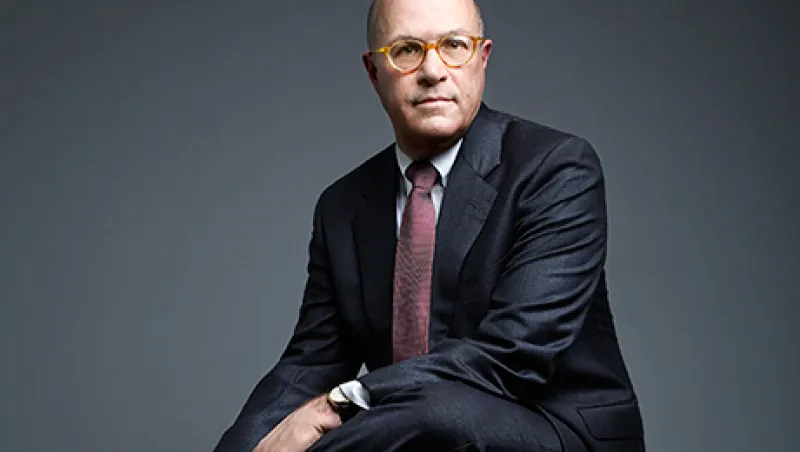J. Christopher Giancarlo disagrees. He disagrees with the suggestion that the Commodity Futures Trading Commission’s overhaul of the U.S. swaps market is too advanced for there to be meaningful revisions to the rules already passed. And he disagrees with the suggestion that as a new CFTC commissioner recently arrived in Washington after 12 years in the interdealer brokerage business, his strident calls over the past couple of months for the CFTC to revisit its own rules on swaps trading represent the final death rattle of a stricken industry.
“This is not about defending an industry,” Giancarlo says. “Brokers have been around since the beginning of time and likely will be around to the end of time. It’s about defending liquidity and trading in the U.S. swaps market, which is vital to corporations’ ability to manage risk.”
Giancarlo, 55, gave up his spot as lead banjo in the Slacks, a band he founded with friends in his native New Jersey, after moving to Washington to take up his post with the CFTC last June. But he seems to have brought a lot of that instrument’s fabled dueling power, made famous by the 1972 film Deliverance, to his new gig. In a paper released in late January that rocked the swaps business, Giancarlo laid out the case for rewriting parts of the regime the CFTC has put in place for executing swaps, complex derivatives used mainly for hedging.
The centerpiece of his proposal is that the CFTC, which has built a complex and prescriptive set of trading protocols and exemptions for different categories of swaps, should leave more flexibility to market participants to decide how trades are executed. “It’s never too late to do it right,” Giancarlo says.
The CFTC won plaudits from much of the financial industry for writing its mandated rules under the Dodd-Frank Wall Street Reform and Consumer Protection Act faster than any other federal agency. Starting in February 2014, most plain-vanilla interest-rate swaps, by far the most important segment of the $690 trillion global swaps market, were required to trade on a swap execution facility, a new type of regulated, exchange-like electronic venue created by the CFTC to bring transparency to the previously opaque, over-the-counter asset class; other segments have since been brought on to SEFs.
The agency’s bet was that if the U.S. moved first, the rest of the world would follow. “It hasn’t happened that way,” claims Giancarlo, who was previously head of mergers and acquisitions at GFI Group, a New York–based interdealer brokerage now the subject of a takeover bid by rival BGC Partners. He says that even though the CFTC got most of its swaps rules right, especially on clearing and data collection, the imposition of an electronic execution model borrowed from the futures market on a “fundamentally different asset class” has led to fractured swaps liquidity and driven non-U.S. swaps participants away from the market. This, Giancarlo contends, is bad for America because an illiquid swaps market crimps corporations’ ability to hedge risk.
He isn’t the first to make this argument, and it’s not even clear if he’s right: The regularly invoked specter of an imminent drop in U.S. swaps liquidity is long on rhetoric and short on data. Clarus Financial Technology, a Chicago-based capital markets consulting firm, tracks SEF volumes daily and concluded at the end of 2014 that such fears are greatly exaggerated.
Giancarlo says he’s “hopeful” his suggestions will be taken up, though that seems unlikely. Wall Street has already poured hundreds of millions of dollars into retooling itself for new regulatory climes. There’s a clear set of early winners — notably Bloomberg and Tradeweb Markets — emerging in the race for SEF liquidity, and many of the interdealer brokerages that used to dominate the OTC market have been forced to downsize or consolidate.
But Giancarlo’s call may be more interesting for what it says about the future direction of the CFTC. Most of the swaps rules were completed while former chairman Gary Gensler was still in charge. Gensler, aided and abetted by the wild-haired, wilder-tongued former commissioner Bart Chilton, was famously tough on Wall Street. New head Timothy Massad, who took up his post last July, has signaled a less confrontational approach, and Giancarlo’s interventions seem to fit within that theme. As this new CFTC searches for its identity, the music between Washington and Wall Street looks set to change: less dueling banjos, more two-part harmony.







